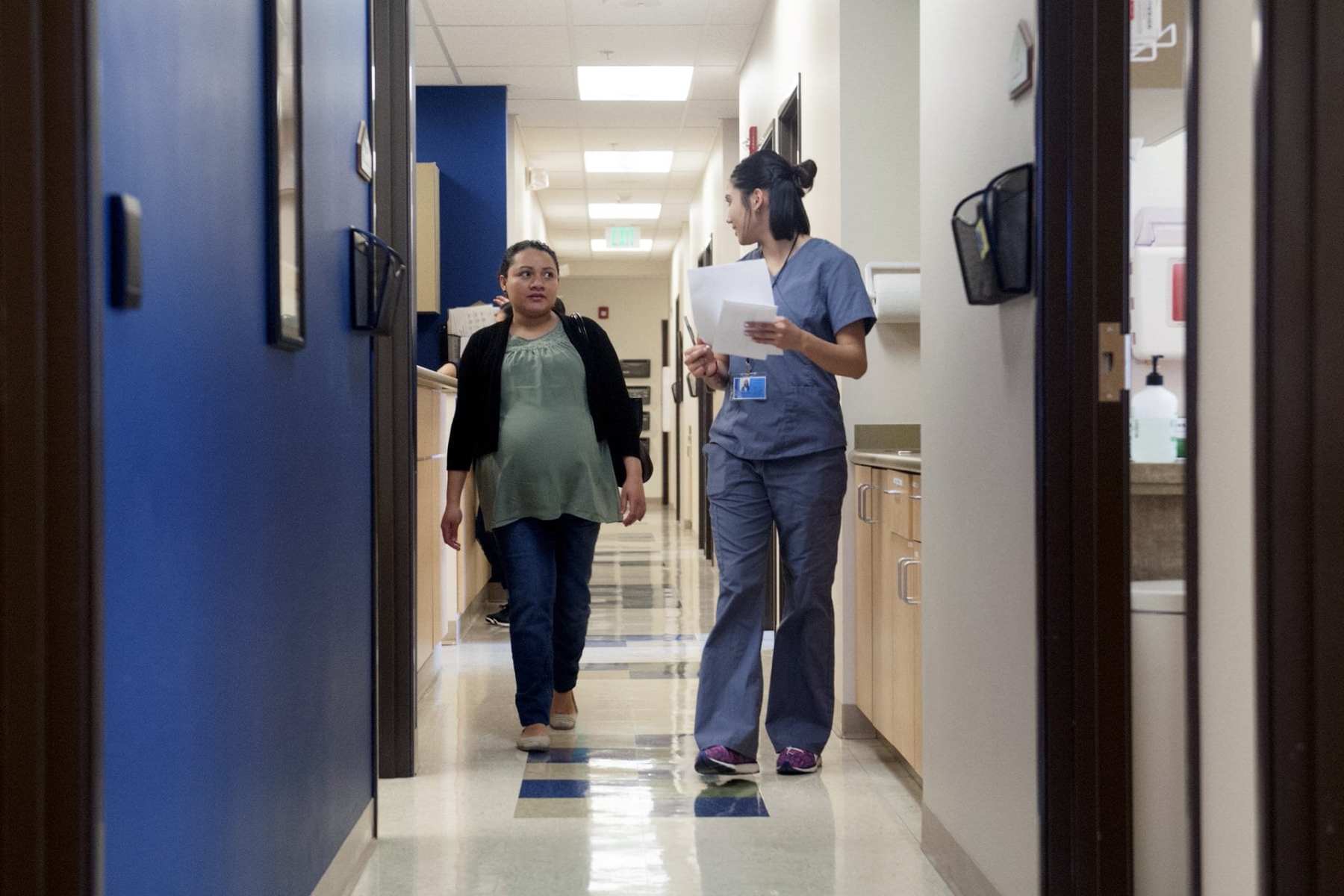A new analysis first shared with The 19th shows that the odds of finding adequate pregnancy-related health care can vary widely from state to state, despite an Affordable Care Act regulation that deems such care essential for many private insurance plans to cover.
The review, conducted by the left-leaning Center for American Progress, looks across the country at the so-called “benchmark plans” that ultimately shape what insurance plans sold on the individual marketplace will cover. For Americans with that coverage, prenatal and postnatal benefits differ dramatically based on where they live, the analysis shows.
The report found that people in Arkansas and North Dakota are only guaranteed one or two prenatal ultrasounds, respectively, if they are enrolled in marketplace coverage. Typical pregnancies only require two ultrasounds, but potential fetal complications could necessitate more screenings, which would not necessarily be covered.
In four states —Alabama, Idaho, Louisiana and Mississippi — the benchmark plans don’t cover pregnancy-related services for someone who is claimed as a dependent, which some lawyers argue may violate ACA regulations. In six states, benchmark plans explicitly exclude coverage of home births. No state’s benchmark explicitly covers doulas, and Connecticut’s benchmark actively excludes them.
“States have so much flexibility to define what is included in these services, even if it’s not consistent with what people might need,” said Jamille Fields Allsbrook, an author of the report and CAP’s director of women’s health and rights. “Anyone who’s ever been pregnant — who ever knows how many [ultrasounds] you might need? That was alarming to us.”
The issue boils down to how the ACA is interpreted. The law requires that marketplace insurance cover 10 “essential” health benefits, one of which is pregnancy-related care. But it doesn’t define what that means in practice. Instead, benchmark plans provide a template for other insurance to base their coverage on, giving plans the freedom to add on more benefits, if they choose.
When the ACA was first passed, the law’s language — which gave the Health and Human Services secretary power to clarify what would satisfy the essential health benefit requirement — led many to believe that the federal government would ultimately create a national benchmark plan.
That would have given states a clear, standardized list of benefits that marketplace insurance would have to include. In theory, that benefit list would be continuously updated, to reflect best medical practices.
But that never happened. The result is more generous coverage in some states, and much skimpier guarantees in others.
“I’m not surprised by the gaps,” said Katie Keith, a Georgetown University law professor and health policy expert who was not affiliated with the CAP paper. “This analysis shows the problem with the benchmark plan approach.”
“The Obama administration made an implementation decision to essentially kick the decision making to states,” said Sabrina Corlette, a research professor at the Center on Health Insurance Reforms at Georgetown University in Washington, D.C. “That certainly led to a lot more variation.”
In theory, experts said, the Biden administration has the authority to create a federal benchmark plan. That could give states clearer guidance about what pregnancy-related benefits must be covered and create a more uniform system across the board. But the administration so far has not indicated any plans to do so.
The implications are significant, Allsbrook argued. The United States ranks worse than any other wealthy nation for pregnancy-related health outcomes, and deaths are particularly high for Black people and Native Americans. That makes the widespread exclusion of doulas particularly troubling, she said — research is limited but scholarship from the nonpartisan Commonwealth Fund suggests that Black parents in particular have better birth outcomes when supported by a doula.
Currently, individual marketplace enrollees make up a fraction of the American health care system — in 2019, only 7.7 million women bought private individual coverage, either through the ACA exchange or independently.
But that is likely to change, Keith and Corlette both said, giving the issue of marketplace regulations far more salience. The Biden administration has put the individual market at the center of its health insurance plan, making more Americans eligible for more generous subsidies to help buy individual coverage. Those expanded subsidies were introduced in the recently passed American Rescue Plan, and Biden is calling on Congress to make them permanent as part of his newly unveiled plan to support families.
That will likely help millions more people buy these plans. Already figuring out what specific benefits an individual insurance option covers — and if they will in turn match what someone might need during pregnancy — is no small feat.
“You need to go dig through the documents. If you want a home birth or birthing center, you dig through the documents even more because a lot of these plans don’t cover these services,” Allsbrook said. “It’s incredibly difficult.”






